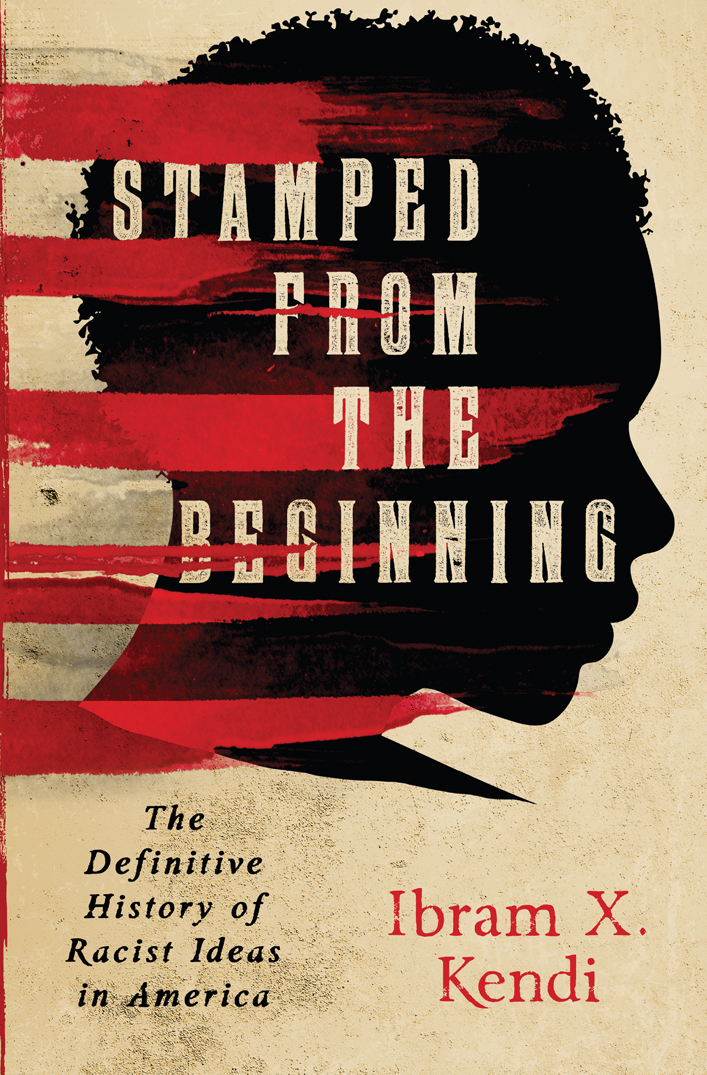
Stamped from the Beginning
The Definitive History of Racist Ideas in America
کتاب های مرتبط
- اطلاعات
- نقد و بررسی
- دیدگاه کاربران
نقد و بررسی

Starred review from January 15, 2016
An accomplished history of racist thought and practice in the United States from the Puritans to the present. Anyone who thought that the 2008 election of President Barack Obama marked the emergence of post-racial America has been sorely disillusioned in the subsequent years with seemingly daily reminders of the schism wrought by racism and white supremacy. And yet anyone with even a cursory understanding of this country's tortured history with race should have known better. In this tour de force, Kendi (African-American History/Univ. of Florida; The Black Campus Movement: Black Students and the Racial Reconstitution of Higher Education, 1965-1972, 2012) explores the history of racist ideas--and their connection with racist practices--across American history. The author uses five main individuals as "tour guides" to investigate the development of racist ideas throughout the history of the U.S.: the preacher and intellectual Cotton Mather, Founding Father Thomas Jefferson, ardent abolitionist William Lloyd Garrison, scholar W.E.B. Du Bois, and activist Angela Davis. Kendi also poses three broad schools of thought regarding racial matters throughout American history: segregationist, assimilationist, and anti-racist. Although this trio can be reductionist, it provides a solid framework for understanding the interplay between racist ideas, anti-racism, and the attempts to synthesize them--"assimilationism," which the author ultimately identifies as simply another form of racism, even when advocated by African-Americans. The subtitle of the book promises a "definitive history," but despite the book's more than 500 pages of text, its structure and its viewing of racial ideas through the lens of five individuals means that it is almost necessarily episodic. Although it is a fine history, the narrative may best be read as an extended, sophisticated, and sometimes (justifiably) angry essay. Racism is the enduring scar on the American consciousness. In this ambitious, magisterial book, Kendi reveals just how deep that scar cuts and why it endures, its barely subcutaneous pain still able to flare.
COPYRIGHT(2016) Kirkus Reviews, ALL RIGHTS RESERVED.

February 15, 2016
Kendi (African American history, Univ. of Florida; The Black Campus Movement) argues that deep beliefs in differences between blacks and whites reach back beyond America's colonial beginnings, and in order to explain the disparities that have persisted in white supremacy and black subordination, suggests that three distinct sets of voices--segregationists, assimilationists, and antiracists--have defined the dominant opinions. Segregationists and assimilationists represent obverse sides of the same coin in Kendi's view. Both accept the stamp of blackness as inferiority: one maintaining that it is biological and cannot be eradicated, the other contending it is behavioral and can be uprooted. Antiracists have rejected the concept by embracing human differences. Using examples ranging from the 1600s to the present, the author exposes the ideas that have formed the foundation of racial discrimination, employing as tour guides prominent Americans such as Cotton Mather, Thomas Jefferson, William Lloyd Garrison, W.E.B. Du Bois, and Angela Davis. VERDICT Kendi's provocative egalitarian argument combines prodigious reading and research with keen insights into the manipulative power of racist ideologies that suppress the recognition of diversity. This is a must for serious readers of American history, politics, or social thought.--Thomas J. Davis, Arizona State Univ., Tempe
Copyright 2016 Library Journal, LLC Used with permission.

February 1, 2016
This heavily researched yet easily readable volume explores the roots and the effects of racism in America. Kendi, assistant professor of African American history at the University of Florida, offers this history through chronologically arranged sections based on the lives of five figures from American history: socially and politically influential Puritan minister Cotton Mather; President Thomas Jefferson; prominent abolitionist and social reformer William Lloyd Garrison; civil rights activist and author W. E. B. Du Bois; and political activist and writer Angela Davis. Kendi posits that there is a three-way argument happening between segregationists, who blame black people for racial disparities; antiracists, who blame discrimination; and assimilationists, who think everyone is at fault. The narrative smoothly weaves throughout history, culminating in the declaration that as much as we'd like it to be, America today is nowhere near the postracial country that the media declared following the election of Barack Obama in 2008. The hope here is that by studying and remembering the lessons of history, we may be able to move forward to an equitable society.(Reprinted with permission of Booklist, copyright 2016, American Library Association.)

























دیدگاه کاربران